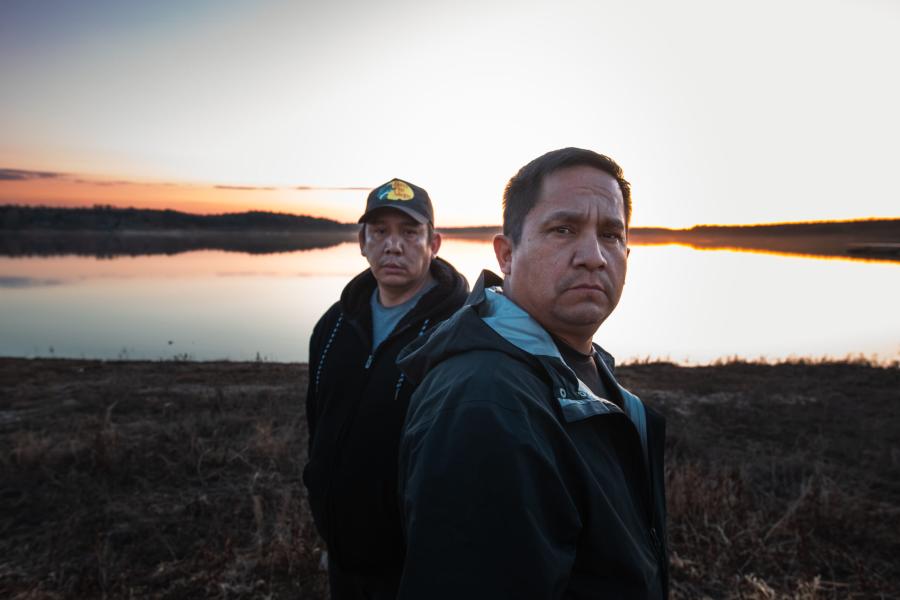Native Americans stand to lose jobs, land rights and legal status under the new North American Free Trade Agreement (NAFTA), which removes trade barriers between the U.S., Canada and Mexico. All of these countries have large indigenous populations, as do Chile and much of Central America, which will soon be added to the Free Trade Zone.
But NAFTA fails preserve the basic rights for indigenous peoples granted by these national governments. NAFTA ignores the unique legal status of indigenous tribes and fails to recognize tribal governments or reservations.
NAFTA also presents a grave danger to Naive land rights, especially in Mexico, where most Native Americans do not have specific reservations but instead live on traditional communal lands recognized for centuries by spanish and Mexican law. These protections have now been removed by the government of President Salinas, thus making it possible for indigenous lands to be purchased by outsiders.
Under NAFTA, investors from the U.S. with wads of dollars will be able to buy up the best valleys. Many Native people, unused to financial wheeling and dealing, are likely to be cheated of their ancient land right. As a result, millions could become economic refugees in the cities and in the U.S. and Canada. Mayan people in the state of Chiapas are already being forced off traditional lands by non-Native speculators seeking to grab potentially valuable ares in anticipation of NAFTA's approval.
NAFTA does not specifically protect "trust" or reserve lands in the U.S or Canada, so we must be try very cautious. Certainly it will affect all lands occupied by Native people without specific agreement with the government (such as Bureau of Land Management lands of "Crown lands" in Canada), all privately held Indian land, and the lands of Alaska native corporations. NAFTA will probably affect the right of a tribe to regulate the sale of privately-held lands within reservation boundaries if such regulation attempts to keep Candadian or Mexican investors out.
NAFTA also completely ignores the existence of Native groups straddling the borders, including Mohawk, Salish-Kooteni, Colville-Okanagan, Abenaki, Cocopa, Kamia, O'odhama, and Kickapoo. A major agreement of this sort should have recognized Native groups split apart by the U.S.- Mexican and U.S.-Canadian borders and included provision for free movement, unification and indigenous local government.
NAFTA us expected to have a devastating impact upon all U.S. workers who are working in minimum wage jobs or sectors vulnerable to Mexican low-wage competition, such as manufacturing, trucking, agriculture, and heavy industry. Native Americans will be especially vulnerable because almost are employed in such ares. Industrial located on or near reservations are especially likely to move to Mexico, where labor can be obtained for 80 cents an hour with no benefits provided.
NAFTA will also end legal protection for U.S. Indian craftspeople, since it will prevent discrimination against their far more numerous Mexican and Canadian counterparts. In ignoring native people totally, the creators of NAFTA did not include a provision protecting all Native crafts-person.
Article copyright Cultural Survival, Inc.



